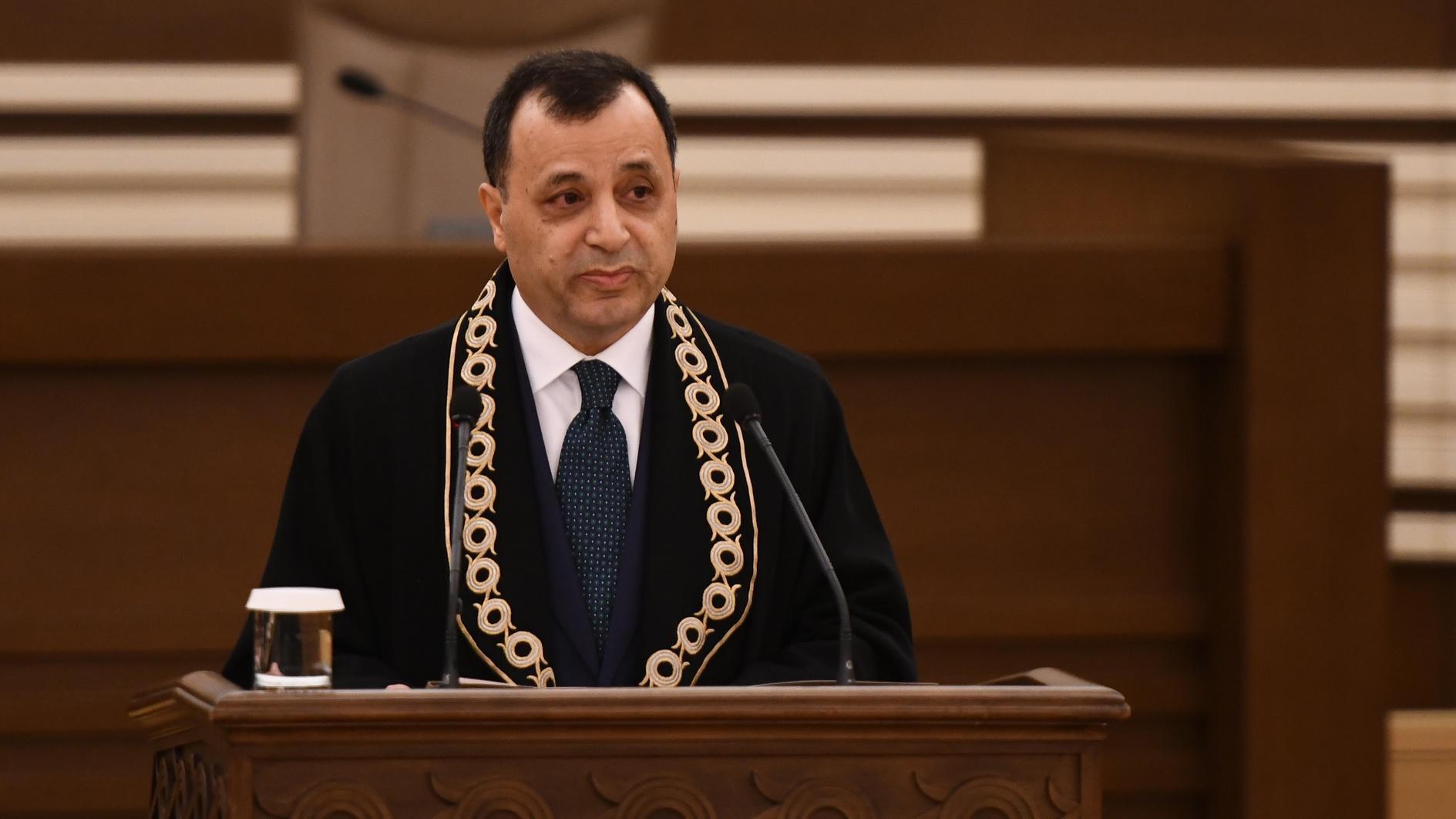Turkey’s Middle East policies losing public support: Survey
ISTANBUL – Hürriyet Daily News

AA Photo
The number of people in Turkey who find the country's policies in the Middle East successful has dropped sharply over the past year, a recent survey has revealed.While those who found Turkey’s Middle Eastern policies "successful" was 37.7 percent in 2011, this ratio decreased to 35.4 by the end of 2012 and then to 26.7 percent last month, according to the survey conducted by Istanbul’s Kadir Has University.
Those who have stopped approving of Turkey’s policies have joined the ranks of those who said they find it neither successful nor unsuccessful, since the ratio of those who expressed "disapproval" remained the same; with 44 percent in 2011 and 43.6 percent in 2013.
The survey was conducted in 26 cities via telephone interviews with 1,000 people.
Some of the most striking findings are on the government’s policies toward Egypt. Some 48 percent of those surveyed said they found Turkey’s policies after the coup in Egypt "unsuccessful"; while those who said they found them "successful" is 29.8 percent.
While Turkey has been one of the fiercest critics of the military coup in Egypt, Prime Minister Recep Tayyip Erdoğan’s harsh rhetoric about Egypt’s new rulers has prompted the administration in Cairo to expel Turkey’s ambassador, reducing diplomatic relations to a lower level.
Some 46.4 percent of those surveyed said Turkey should recognize the new Egyptian administration, while 30.6 percent are against this. On the other hand, 14.4 percent said Turkey should recognize the new administration but freeze economic relations, while 8.6 percent said Turkey should support the ousting of the new administration.
Syria, on the other hand, dominates the agenda of Turkish foreign policy, according to those surveyed. Some 65.5 percent said Syria was the most important item on the agenda. The second most important issue is the fight against terrorism, but there is a huge gap between the two as only 9.9 percent named it as an "important" item.
There are also fewer people who approve of Turkey’s policies toward Syria; those who said they find Turkey’s Syrian policies successful dropped from 33 percent in late 2012 to 24.1 percent in 2013. There is only a three percent rise among those who said Turkey’s Syrian policies are "unsuccessful." The ratio was 46 percent in 2012 and 49 percent in 2013.
Those who believe Turkey should remain neutral and not interfere in developments in Syria are 41.7 percent, while support for providing military assistance to Syrian opposition decreased from 11.4 in 2012 to 5.2 percent in 2013.
Although there is an increasing disapproval of the government's Middle Eastern policies, approval for the government’s overall foreign policy is still relatively high with 25.1 percent saying they find it "successful" and 38.9 percent saying they find it "partially successful." However, there is a decrease among those who find overall government policies "successful."
While this is the first time Kadir Has University has held a survey on foreign policy perceptions in Turkish public opinion, the political and social survey it has been conducting for the past five years included questions about foreign policies, allowing some comparisons to be made.
Support for Turkey’s EU membership has dropped to 47.5 percent this year, from 58 percent in 2012. Some 46.7 percent think Turkey will never join the European Union, with 44.6 percent believing religious and identity differences are the main obstacles for Turkey’s membership.
When they were asked about what Turkey’s alternatives to EU membership could be, 26.1 percent of respondents said they were in favor of the establishment of a Turkish Union. While 12.8 percent said cooperation between NATO and the EU should be formed, only nine percent said the Shanghai Cooperation Organization, which has recently been floated as a possibly option by Turkish Prime Minister Recep Tayyip Erdoğan, could be an alternative.
Other interesting finds from the survey pertain to how Turkey perceives itself. Some 37 percent of those surveyed said Turkey was an Islamic country, 24.3 said Turkey was a European country, and 21.6 said Turkey was a Middle Eastern country. Some 71.9 percent of those surveyed said Turkey could be a "model" for Muslim countries.
Some 38.6 percent believe Turkey has "no friends," though Azerbaijan tops the list of friendly countries for 28 percent of respondents. Interestingly, 7.4 percent said the U.S. was the closest friend, while this ratio is only 2.9 for Pakistan, which used to figure higher on the list. The U.S. continues to be seen as a major threat, although on a lesser degree. The U.S. is a threat according to 41.7 percent of those polled, down from figures in the 50s and 60s in previous years.
The poll also gives a sense about the conduct of foreign policy. Some 43.3 percent believes the Foreign Ministry is shaping foreign policy, while according to 30 percent it is the prime minister. When asked, which institution should conduct foreign policy, 33.3 percent say the Foreign Ministry, 32.2 say the foreign minister, 25 percent say the government, 12.9 say the prime minister, and 7.7 percent say the president.
















